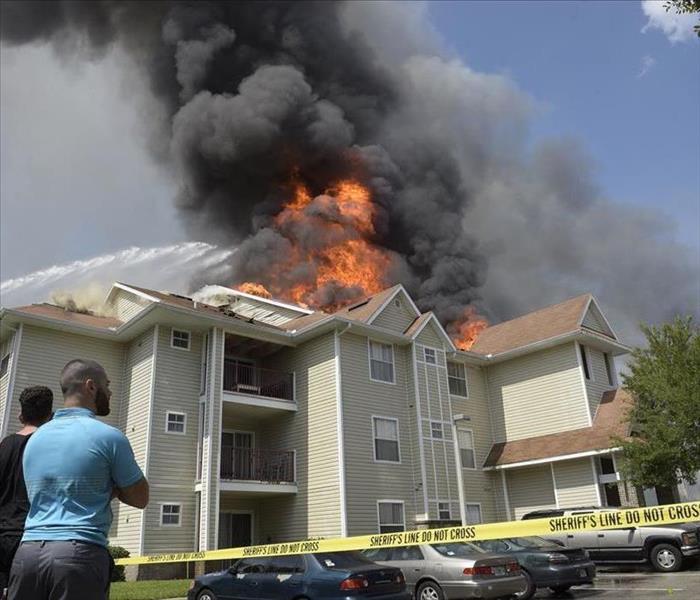Avoid Smoke and Fire Damage UCF With These Tips by SERVPRO
5/20/2020 (Permalink)
A vigilant approach is the best way to avoid a house fire. By taking the proper precautions listed by SERVPRO, homeowners can protect their house from smoke and fire damage.
Creating an Escape Plan
A National Fire Protection Association survey revealed many homeowners overestimate the time they have to escape their house during a fire. Since a home fire is an unexpected, high-stress event, it is imperative to create an escape plan. The ideal plan has an exit strategy. A minimum of two ways to exit each room when possible, and ensure windows and doors can be easily opened. Nobody should reenter the house to retrieve pets or belongings after escaping the fire.
Following Safe Electrical Guidelines
According to the U.S. Fire Administration, 280 people die, and 1,000 more people are injured in America every year due to electrical fires, many of which are preventable. Homeowners should:
- Matchlight bulbs to each light fixture and lamp's recommended wattage.
- Plug all major appliances into an outlet instead of a power strip or extension cord.
- Talk to an electrician about installing AFCIs or arc fault circuit interrupters, to shut off electricity in the event of a dangerous arcing fault.
- Use a single heat-producing appliance in each outlet at one time.
Installing Smoke Alarms
When it comes to fire prevention, smoke alarms are an essential preventive tool a homeowner can use. Statistics from the American Red Cross show that 65 percent of deaths from home fires occurred in houses that did not have an operable smoke alarm. All smoke alarms should be interconnected, so they sound off when smoke is detected, and alarms should be replaced every 10 years even though they still work. Homeowners should also make sure to install detectors in the basement, in every bedroom, outside each bedroom door, on every level of the home and ten feet or more away from cooking appliances.
Practicing Cooking Safety
Fire damage caused by cooking accidents costs homeowners $1 billion according to the National Fire Protection Association. Because cooking is a common home activity, it carries serious safety risks. SERVPRO recommends that homeowners:
- Never leave cooking food unattended.
- Store flammable materials in a location away from the stove and oven.
- Use a timer while cooking to prevent them from falling asleep or forgetting about the cooking food.





 24/7 Emergency Service
24/7 Emergency Service